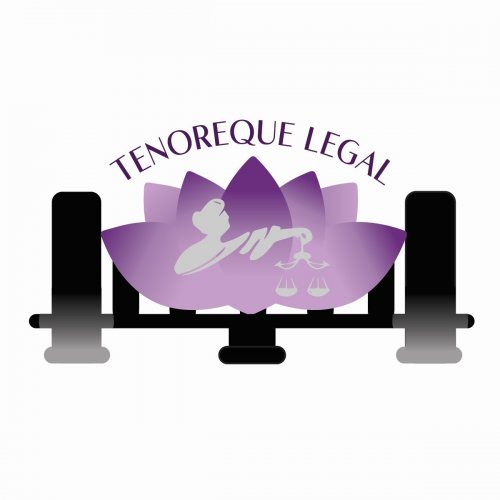Best Nonprofit & Charitable Organizations Lawyers in Trinidad and Tobago
Share your needs with us, get contacted by law firms.
Free. Takes 2 min.
Or refine your search by selecting a city:
List of the best lawyers in Trinidad and Tobago
About Nonprofit & Charitable Organizations Law in Trinidad and Tobago
Nonprofit and charitable organizations in Trinidad and Tobago are primarily governed by legal frameworks that encourage and regulate their formation, operations, and contributions to society. These organizations are fundamental in supporting various causes, from education to health, and rely heavily on volunteer efforts and donations. The laws ensure transparency, accountability, and the proper use of funds, thus maintaining public trust and facilitating the effective achievement of their goals.
Why You May Need a Lawyer
Legal assistance is crucial for nonprofit and charitable organizations to navigate complex regulatory requirements and ensure compliance. Common situations where legal help may be needed include:
- Setting up a nonprofit organization and understanding the legal framework.
- Ensuring compliance with tax obligations and qualification for tax exemptions.
- Drafting and reviewing contracts and agreements.
- Understanding fundraising laws and donor regulations.
- Handling employment and labor law issues related to staff and volunteers.
- Advising on governance issues, including board responsibilities and liabilities.
- Assisting with the dissolution process if needed.
Local Laws Overview
Several key aspects of local laws in Trinidad and Tobago are particularly relevant to nonprofits and charitable organizations:
- Companies Act: Nonprofit organizations can register under this act as companies limited by guarantee.
- Income Tax Act: Provisions for tax exemptions and charitable donation deductions are outlined within this act.
- Non-Profit Organisations Act: Introduced two types of non-profit companies and sets standards for operation, transparency, and accountability.
- Regulatory Requirements: Includes regular reporting obligations and financial transparency requirements.
- Foreign Funding Regulations: Requirements for reporting foreign donations might apply, ensuring funds are used for lawful purposes.
Frequently Asked Questions
What is the process of registering a nonprofit organization?
The process involves drafting a constitution or articles of incorporation, registering with the Companies Registry, and applying for a certificate of registration from the Ministry of Finance for tax exemptions.
Are nonprofit organizations subject to taxes in Trinidad and Tobago?
Nonprofit organizations may be eligible for tax exemptions under the Income Tax Act. However, they must apply for this status and comply with relevant criteria.
Can nonprofits engage in profit-making activities?
Yes, but profits must be used solely to further the organization's objectives and not for private gain.
What are the requirements for financial reporting?
Nonprofits are required to maintain proper financial records and submit annual returns to ensure accountability and transparency.
How can a nonprofit ensure compliance with laws and regulations?
Regular legal audits, staying informed of legislative changes, and consulting with legal professionals can help ensure compliance.
What is the role of a board of directors in a nonprofit?
The board is responsible for governing the organization, setting strategic direction, and ensuring fiduciary responsibilities are met.
Is there a difference between a charity and a nonprofit organization?
While both aim to benefit the public, charitable organizations typically focus on philanthropy and relief efforts, whereas nonprofits can have broader goals.
How can a nonprofit protect its intellectual property?
Organizations can register trademarks or copyrights for their brand, logos, and proprietary materials to protect intellectual property.
What legal obligations exist when hiring employees or engaging volunteers?
Nonprofits must adhere to labor laws, including fair treatment, minimum wage laws, and workplace safety regulations, for both employees and volunteers.
How does a nonprofit dissolve if it can no longer carry out its objectives?
Dissolution involves settling debts, distributing remaining assets according to the organization's governing document, and officially deregistering with the relevant authorities.
Additional Resources
Those seeking legal advice or further information can reach out to the following resources:
- Companies Registry: Provides resources and assistance for setting up businesses, including nonprofits.
- Ministry of Finance: Offers guidance on tax exemptions and related inquiries.
- Trinidad and Tobago Chamber of Industry and Commerce: An organization offering resources for various types of businesses and organizations.
Next Steps
If you need legal assistance in matters related to nonprofit and charitable organizations, consider the following steps:
- Identify specific areas where legal guidance is needed.
- Research legal professionals or law firms with expertise in nonprofit law in Trinidad and Tobago.
- Arrange consultations to discuss your needs, understand their services, and determine their fees.
- Engage a qualified lawyer to assist with your legal needs and ensure compliance with all applicable laws and regulations.
Lawzana helps you find the best lawyers and law firms in Trinidad and Tobago through a curated and pre-screened list of qualified legal professionals. Our platform offers rankings and detailed profiles of attorneys and law firms, allowing you to compare based on practice areas, including Nonprofit & Charitable Organizations, experience, and client feedback.
Each profile includes a description of the firm's areas of practice, client reviews, team members and partners, year of establishment, spoken languages, office locations, contact information, social media presence, and any published articles or resources. Most firms on our platform speak English and are experienced in both local and international legal matters.
Get a quote from top-rated law firms in Trinidad and Tobago — quickly, securely, and without unnecessary hassle.
Disclaimer:
The information provided on this page is for general informational purposes only and does not constitute legal advice. While we strive to ensure the accuracy and relevance of the content, legal information may change over time, and interpretations of the law can vary. You should always consult with a qualified legal professional for advice specific to your situation.
We disclaim all liability for actions taken or not taken based on the content of this page. If you believe any information is incorrect or outdated, please contact us, and we will review and update it where appropriate.
Browse nonprofit & charitable organizations law firms by city in Trinidad and Tobago
Refine your search by selecting a city.














